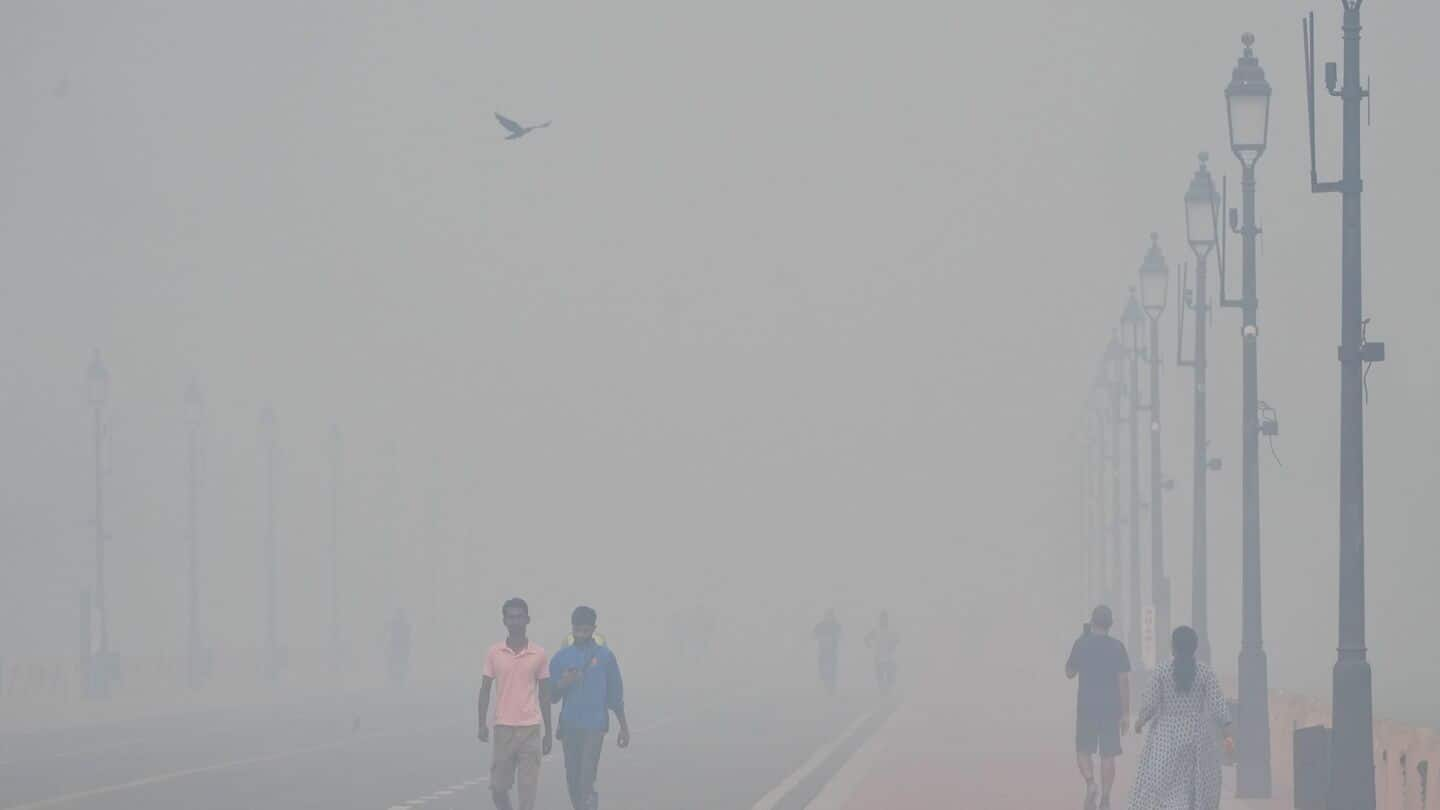
Delhi under toxic haze for 2nd day; AQI 'very poor'
What's the story
Delhi continues to be engulfed in a toxic haze for the second consecutive day after Diwali. The Central Pollution Control Board (CPCB) recorded an Air Quality Index (AQI) of 345 at 7:00am, classifying it as "very poor." Out of 38 monitoring stations across the city, 34 fell into the red zone, indicating "very poor" to "severe" air quality.
Pollution spike
PM2.5 levels nearly 100 times WHO's recommended exposure limit
The Punjab Bagh and Wazirpur stations recorded severe pollution levels with AQIs of 433 and 401, respectively. Visuals from ITO showed a thick layer of smog, where the AQI was recorded at 361. This year, Delhi's post-Diwali air quality is at a five-year low despite a significant reduction in stubble burning by 77.5%. PM2.5 levels reached an alarming average of 488 micrograms per cubic meter, nearly 100 times the World Health Organization's recommended exposure limit.
Firecracker violations
AAP blames BJP for poor air quality
The Supreme Court had permitted the use of "green" firecrackers in Delhi-NCR between 8:00pm and 10:00pm on Diwali. However, many residents violated these directions, leading to continued celebrations late into the night. The Aam Aadmi Party (AAP) criticized the ruling Bharatiya Janata Party (BJP) for not doing enough to curb pollution. AAP MLA Gopal Rai accused the BJP of "making excuses" and not taking action to prevent pollution.
Pollution measures
Kejriwal announces plans for artificial rain
Delhi Chief Minister Rekha Gupta said the government is "working proactively" on plans for artificial rain to reduce pollution levels. The plan will be executed once the India Meteorological Department (IMD) confirms suitable cloud and moisture conditions. Gupta also emphasized efforts toward electric mobility, with a target of deploying 10,000 electric buses by 2027. The Commission for Air Quality Management (CAQM) has extended Stage 2 of the Graded Response Action Plan (GRAP) to tackle worsening air quality.
Pollution control
CAQM issues directives to improve air quality
The CAQM's measures include mechanical sweeping of roads, water sprinkling to control dust, and stricter monitoring of construction sites. Authorities have also been directed to increase parking fees and boost public transport frequency. The Commission emphasized "water sprinkling along with use of dust suppressants" on roads at hotspots and heavy traffic corridors.